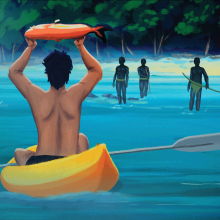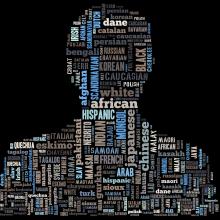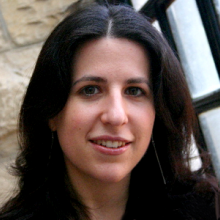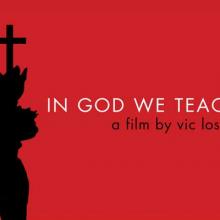documentaries
IN 2018, 26-year-old American missionary John Allen Chau journeyed to the Andaman Islands in the Indian Ocean. He wanted to minister to the Sentinelese, the Indigenous residents of North Sentinel Island and one of the last population groups on the planet to have avoided modernization by the outside world. Chau, an Oral Roberts University graduate who grew up steeped in conservative evangelical culture, felt called to bring the gospel to unreached people.
The mission did not go as planned. Chau was quickly killed by the Sentinelese, who saw him as a threat. Chau’s death caused a public reevaluation of cross-cultural missions, one explored in the documentary The Mission. The film tells Chau’s story through his diary excerpts, his father Patrick’s account of Chau’s life, and expert interviews.
Directors Amanda McBaine and Jesse Moss don’t cast judgment; instead, they add context and ask questions. Was Chau’s death martyrdom, or the result of a foolish fantasy? Does teaching God’s word to isolated peoples help them, or open them to exploitation, colonization, and eradication?
Racism continues to plague our nation. From disparities in the criminal justice system to attacks on voting rights, many of us have sat by as our brothers and sisters are treated unequally. It doesn’t have to be this way.
As “Peace Pastor” Marty Troyer describes in “Subverting the Myth” (Sojourners, December 2013), with a lot of hard work and honest dialogue, racial reconciliation is possible.
People of faith are leading the new movement for racial justice. To become an agent of reconciliation, sign the One Church, One Body pledge and check out the resources below.
ARTICLES
- By Accident of Birth, by Jim Wallis
- Can We Talk? White Privilege Today, by Andrea Ayvazian and Beverly Daniel Tatum
- In the Middle: The Challenge of Racial Reconciliation, by Catherine Meeks
- Ooh! Is That Racism on Your Shoe?, by Chris Rice
- Racism: America’s Original Sin, by Jim Wallis
- To Move Beyond Denial, by Yvonne V. Delk
- Whose America is It?, by Anthony A. Parker
IN HER JEWISH school in Montreal, Ronit Avni learned the tragic history of her people. Her Canadian mother and Israeli father had met in the ’60s when her mother was living in Israel and working as a folk singer, often performing for Israeli troops. Her older sister was born in Tel Aviv, but the family settled back in Montreal in the mid-’70s before Ronit was born.
Not strictly religious but committed to the values of Judaism, Ronit couldn’t help but ask probing questions as she listened to the stories of the birth of the modern state of Israel in 1948. Am I hearing the whole story? How do Palestinian perspectives differ from what my educators and community leaders are teaching? How can we transform this situation from a zero-sum equation to one that respects the dignity and freedom of all?
Years later, having graduated with honors from Vassar College with a degree in political science after studying theater at a conservatory in Montreal, Ronit trained human rights advocates worldwide to produce videos as tools for public education and grassroots mobilizing.
By the time I met Ronit a few years ago, she had narrowed her worldwide focus to the Israeli-Palestinian conflict, where her heart was most deeply drawn. She is the founder and executive director of Just Vision, an organization dedicated to increasing media coverage and support for Palestinian and Israeli efforts to end the occupation and conflict without weapons of violence.
During the last several years, my engagement in the Holy Land has been significantly shaped by Ronit. Her film Encounter Point, about Israelis and Palestinians who have lost family members, land, or liberty to the conflict yet choose forgiveness and reconciliation rather than revenge, gave me hope that peace can emerge from pain.
I’VE WINCED often at the portrayal of religion in recent documentaries—partly out of embarrassed identification with some of the apparently crazy things I’ve witnessed in real life, and partly because some documentarians seem to think that there’s nothing to religion other than those crazy things. God Loves Uganda, a new documentary about the role played by U.S. missionaries in nurturing that country’s homophobic culture and legislation, manages to avoid the mistake of confusing bad religion with all religion.
The concern for the Ugandan people manifested by fundamentalist charismatic Christians is suggested to be far less than the sum of its parts as they become participants in the nurturing of a social structure that aims to eradicate gay people. But the film avoids easy stereotyping of Christian mission work, particularly in the person of Bishop Christopher Senyonjo, a smiling radical in the mold of Desmond Tutu. His is a face of Ugandan Christianity that is open, generous, alive, courageous, and kind—a prophetic African voice for human rights.
Wendell Berry recently suggested that the expression of anti-LGBTQ sentiment may evoke a kind of subconscious reaction in the proponent akin to autoerotic pleasure. Delighting in the pain of others is a kind of sadism rooted in the insecurities harbored by the person who has decided it’s their job to be the moral police, despite how kind they may think they are being. The fear stirred by psuedo-Dominionist movements may have given the U.S. missionaries in God Loves Uganda a sincere desire to change the world. But their lack of self-reflection leads them to export some of the worst of American cultural imperialism: prejudice, the conflation of sentimentality and cultural ignorance with love, the denial of the gift that the other has for us.
There were no red carpets, no paparazzi, no celebrities, and definitely no God at the recent annual Atheist Film Festival.
Instead, there were more than a dozen films, long and short, about separation of church and state, freedom of religion (and no religion), the conflict between science and religion in public schools, and a couple hundred people eager to see them.
“If we don’t do this, who will?" said festival organizer Dave Fitzgerald, as people picked up atheist-themed books and T-shirts at the Aug. 10-11 festival. “Atheists are not well-represented by Hollywood, and a lot of people don’t get any exposure to real atheist thought except through things like this.”
Fitzgerald, who calls himself “a freelance heretic,” started the festival four years ago. His main criteria for including a film is that it shows at least one atheist figure in a positive light.
“My motto is: Are they heretic friendly?" Fitzgerald said. “We are in a position where we can actually turn away movies because their hearts might be in the right place, but they may be stilted and preachy.”




